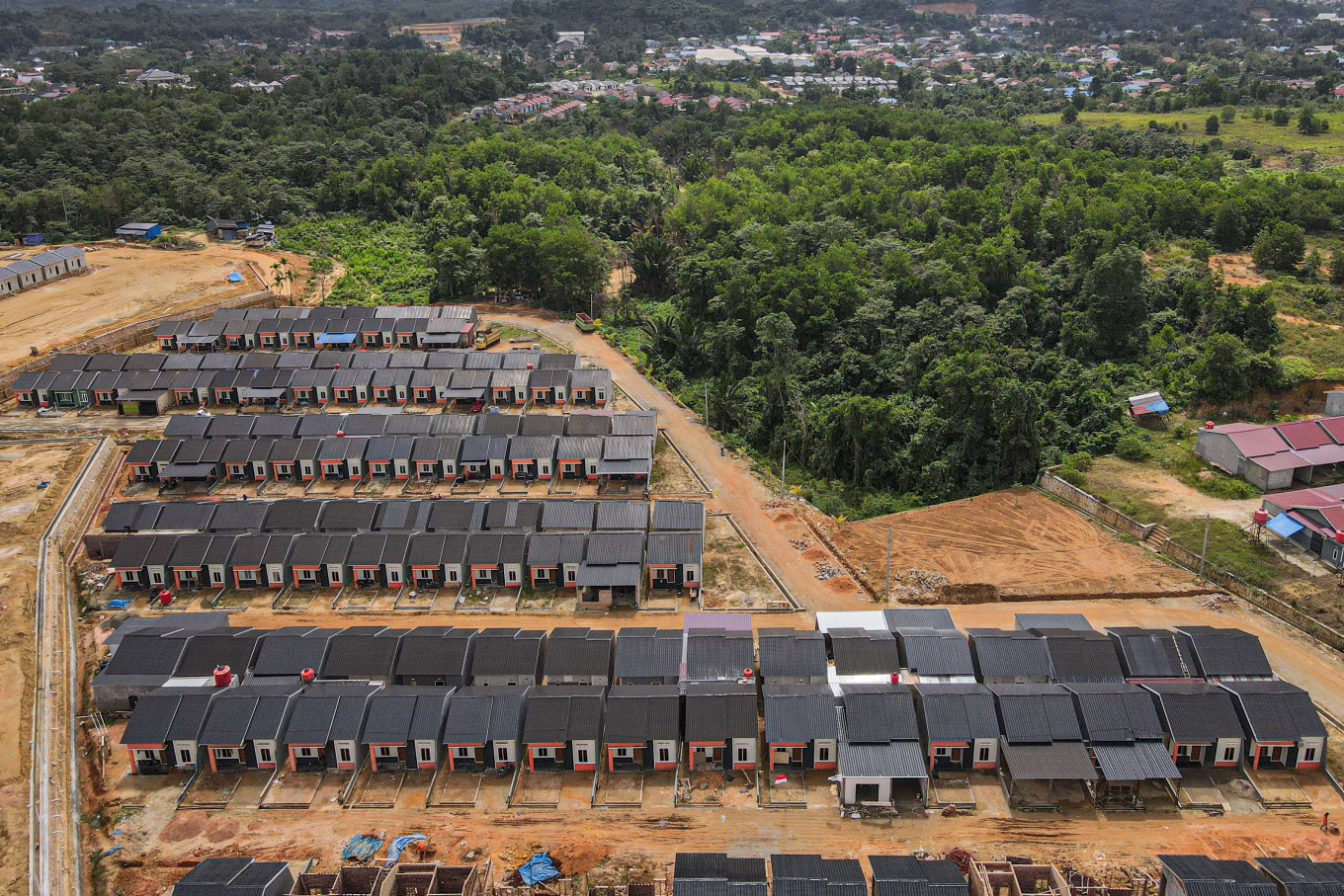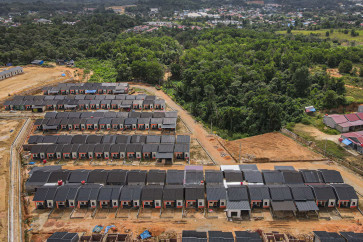Popular Reads
Top Results
Can't find what you're looking for?
View all search resultsPopular Reads
Top Results
Can't find what you're looking for?
View all search resultsGovernment’s housing target calls for paradigm shift
Providing financing subsidies is not the only form of intervention that can be carried out by the government.
Change text size
Gift Premium Articles
to Anyone
R
eal estate industry players and the public welcome the various policy breakthroughs President Prabowo Subianto’s government has made to meet public housing needs. The housing industry has a multiplier effect on 185 other industrial sectors. The establishment of the Public Housing and Settlements Ministry and the Office of the Coordinating Infrastructure and Regional Development Minister are steps that have long been recommended by business actors and associations in the property sector.
Fulfilling the housing needs in the current conditions is indeed not easy. Data shows a backlog of 10.7 million houses. The housing ministry has asked for an additional budget of Rp 48.4 trillion (US$3.1 billion), almost 10 times the previous budget, to meet the annual target of building three million houses. This target is very ambitious as last year only 223,000 units of subsidized public housing were built.
Therefore, the government needs to consider various policy breakthroughs, and even new paradigms.
Providing subsidies is not the only form of intervention that can be implemented by the government. Other ways include easing taxes and fees related to transactions and land acquisition by the state. The housing ministry has talked with the Finance Ministry on budget increases. The components of costs related to housing transactions are quite large, including value-added tax (VAT), which will increase to 12 percent starting in 2025, income tax, at 1 or 2.5 percent, and the Land and Building Acquisition Fee (BPHTB), at 5 percent.
But the government has begun to take the right steps through a joint decree between the Home Ministry, the housing ministry and the Public Works Ministry regarding the exemption of the BPHTB and Building Approval (PBG) fees for low-income people (MBR) housing.
Another urgent intervention that needs to be considered and prepared is the provision of land by the state. Currently the state does not play a role in the procurement and production of housing itself. Both the provision of land, building construction and facilities and infrastructure for the residential area are entirely the responsibility of the developer, which will ultimately be charged to the consumer's selling price.
The housing ministry’s initiative to provide land can help accelerate the provision of housing. The legal umbrella that guarantees the rights of residents, which has been a stumbling block, has also been prepared during the previous administration, namely the Building Ownership Certificate (SKBG). The SKBG has been designed to encourage vertical housing patterns on state-owned land, so the ministry currently only needs to accelerate and maximize it to provide housing for the community.



















